Laird and Company – America’s Oldest Distiller - Laird & Company
-
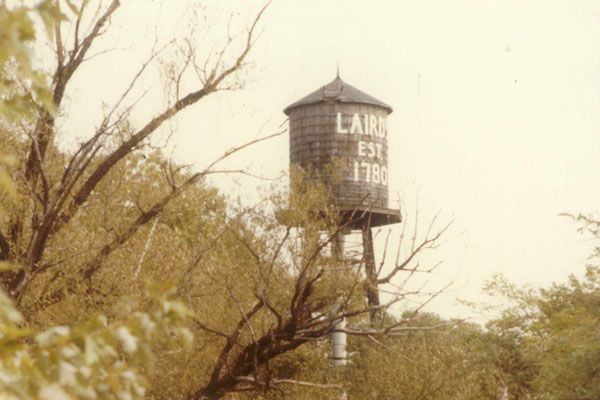
1698 – Great Great Great Great Great Grandpa Bill
In 1698, Alexander Laird emigrated from County Fife, Scotland to America where he eventually settled in Monmouth County, New Jersey. Believed to be a distiller in his homeland, William applied his skills to apples which were the most abundant natural resource in the area. This led to the production of Applejack for his own use, as well as his friends and neighbors.
-
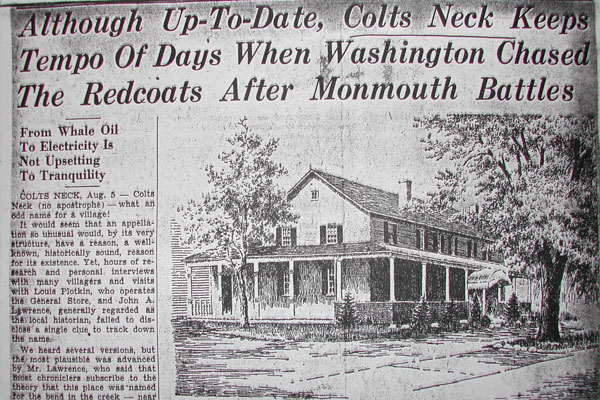
1717 – Colts Neck Inn
The original Laird family distillery was located behind the Colts Neck Inn. The inn served as a stopping point for stage coaches.
-

1760 – George Washington
Prior to 1760, George Washington wrote to the Laird family requesting their Applejack recipe. Entries appear in Washington’s diary in the 1760’s referring to the production of “cyder spirits”. As a Revolutionary soldier serving under George Washington, Robert Laird and his family provided the troops with Applejack.
-
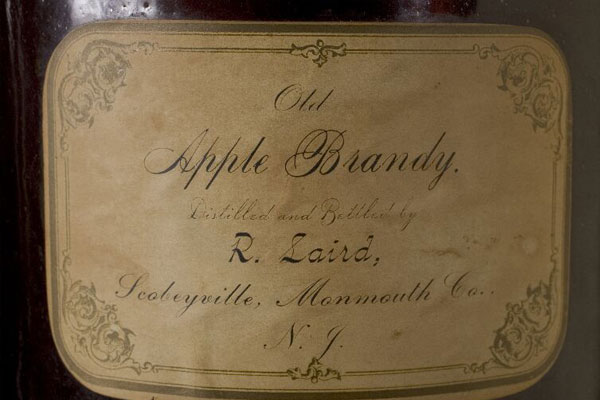
1780
In 1780, Robert Laird recorded the first commercial transaction at the distillery in the tiny community of Scobeyville, NJ.
-
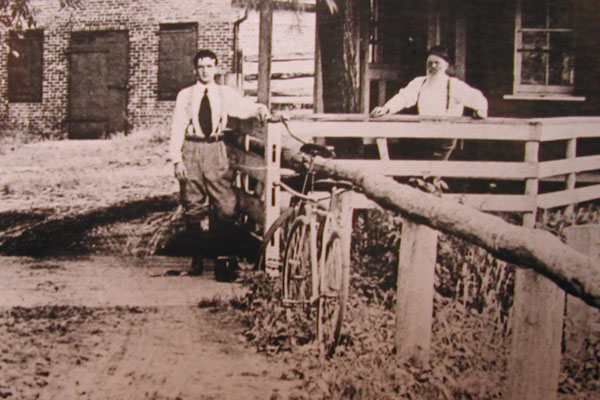
1849 – Fire
The Applejack distillery flourished at the Colts Neck Inn site until 1849, when a fire burned the distillery to the ground. Robert Laird, a fifth generation Laird, re-built the distillery at its current Scobeyville site. In 1851, expanded commercial production of Applejack began.
-
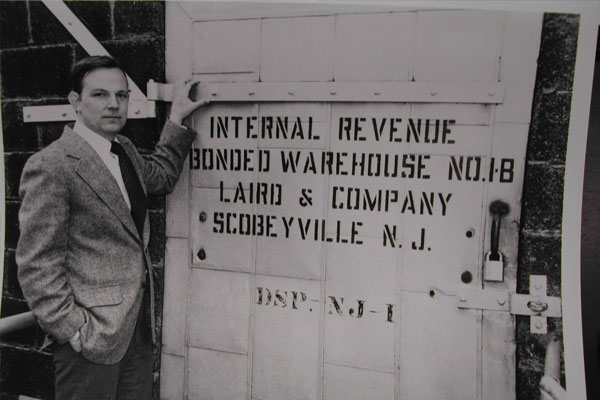
1900 – Prohibition
In the early 1900’s, sixth generation Joseph T. Laird, Jr. faced Prohibition. He kept the company in operation by producing other apple products, such as sweet cyder and applesauce. Joseph’s son’s John Evans and Joseph T. Laird, III continued to produce non-alcoholic products until 1933, when Laird & Company was granted a federal license under the Prohibition Act to produce Apple Brandy for “medicinal purposes”. This allowed the Laird brothers to re-open the distillery.
-

Post Prohibition
Post Prohibition business was booming so the Laird family acquired two additional distilleries in the early 1940’s. One was our current distillery in North Garden, Virginia, near Charlottesville. The Virginia Fruit Distilling Co., as it was then called, was a large producer of fruit wines and spirits being sold in Virginia and the surrounding southern states, and it is very close to the Shenandoah Valley, a great source of apples. With the disappearance of farmland in New Jersey, as of the mid-1970’s our entire production of our apple brandies is distilled in Virginia using only fresh Virginia apples.
-
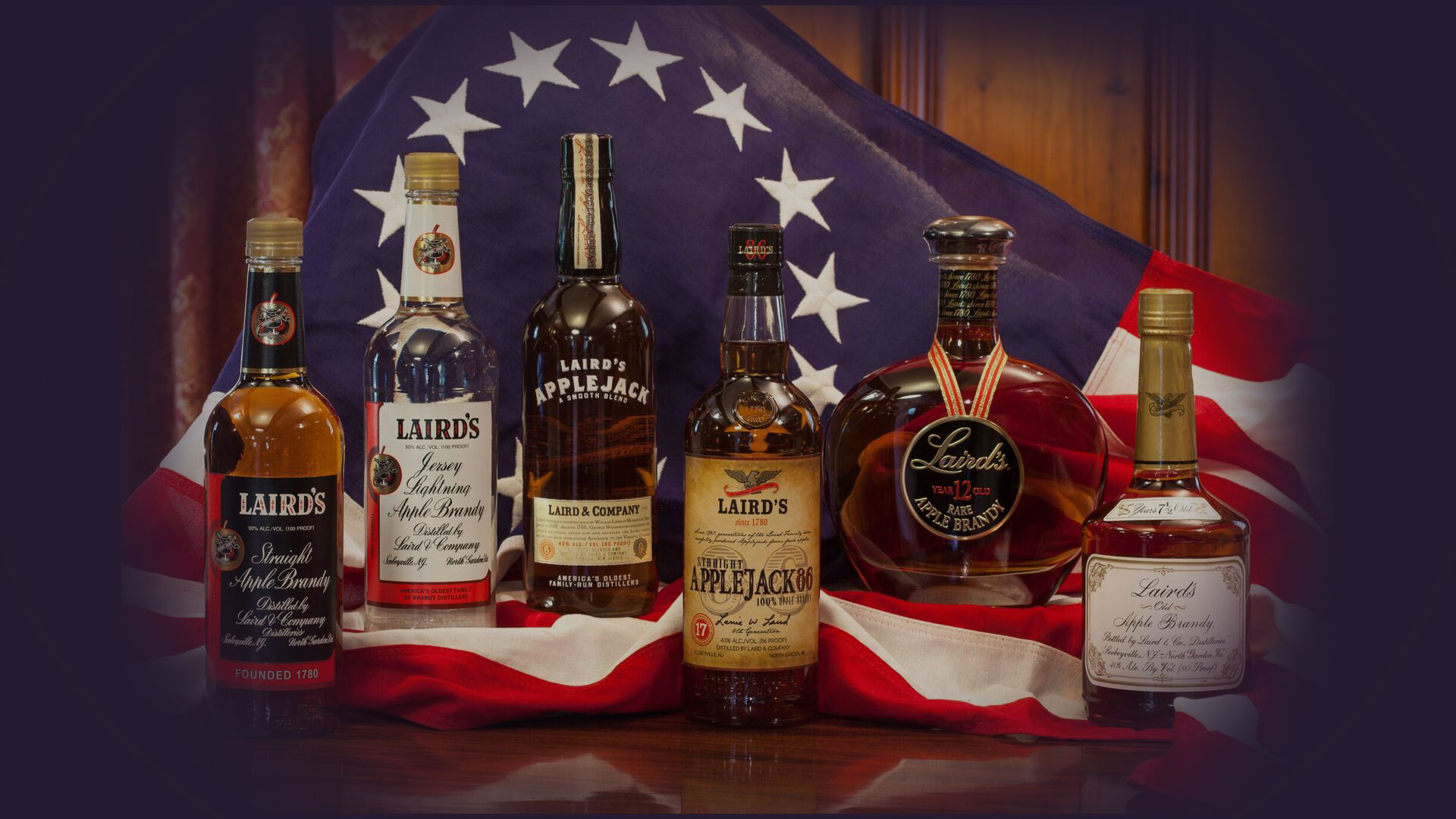
WWII
During War World II Laird & Company converted an area of their distillery for the drying and dehydration of apple pomace for production of pectin to aid in the war effort. Pectin acted as a preservative for war food rations.
-
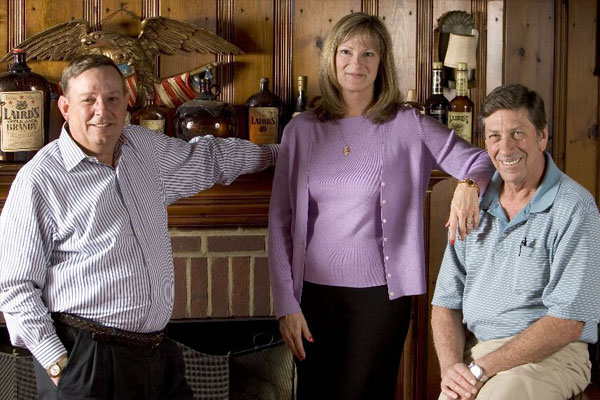
Today
For almost 300 years, the art of producing Applejack has been passed down through succeeding generations of the Laird Family. Ninth generation Lisa Laird-Dunn is now president of Laird & Company and heads America’s oldest family of distillers.

